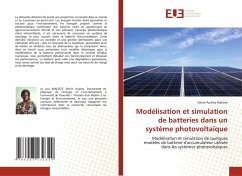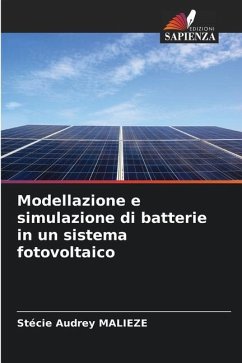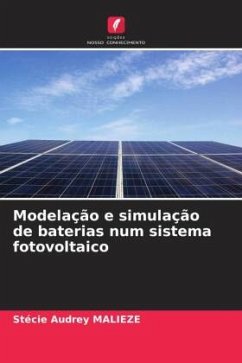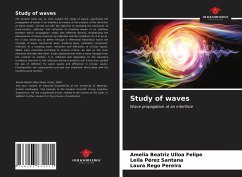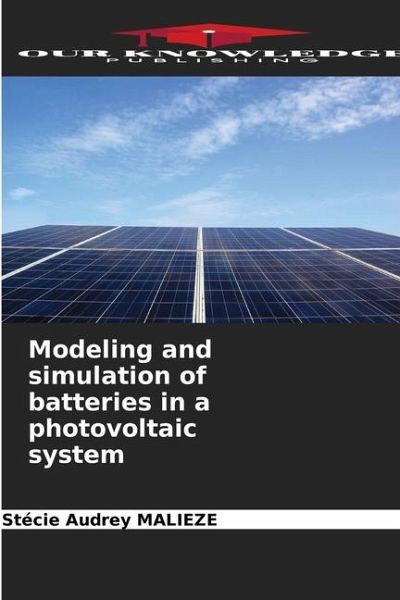
Modeling and simulation of batteries in a photovoltaic system
Versandkostenfrei!
Versandfertig in 6-10 Tagen
40,99 €
inkl. MwSt.

PAYBACK Punkte
20 °P sammeln!
The demand for electricity is growing worldwide and in Cameroon in particular. Fossil energies being exhaustable and harmful for the environment, clean energies such as photovoltaic constitute a relay solution by guaranteeing an unlimited and non-polluting supply. As photovoltaic energy is intermittent, it is necessary to design a storage system, the most common being the accumulator battery. The latter requires a permanent control and management for an efficient use; hence the need to model it, allowing to highlight all the phenomena that compose it. Thus, in this work we present three electr...
The demand for electricity is growing worldwide and in Cameroon in particular. Fossil energies being exhaustable and harmful for the environment, clean energies such as photovoltaic constitute a relay solution by guaranteeing an unlimited and non-polluting supply. As photovoltaic energy is intermittent, it is necessary to design a storage system, the most common being the accumulator battery. The latter requires a permanent control and management for an efficient use; hence the need to model it, allowing to highlight all the phenomena that compose it. Thus, in this work we present three electrical models for the modeling of the lead-acid battery in the locality of Eseka, Cameroon, allowing us to study its operation and to evaluate its performance. The battery can undergo a premature degradation, we estimated its state of charge but also its voltages of charge and discharge.





